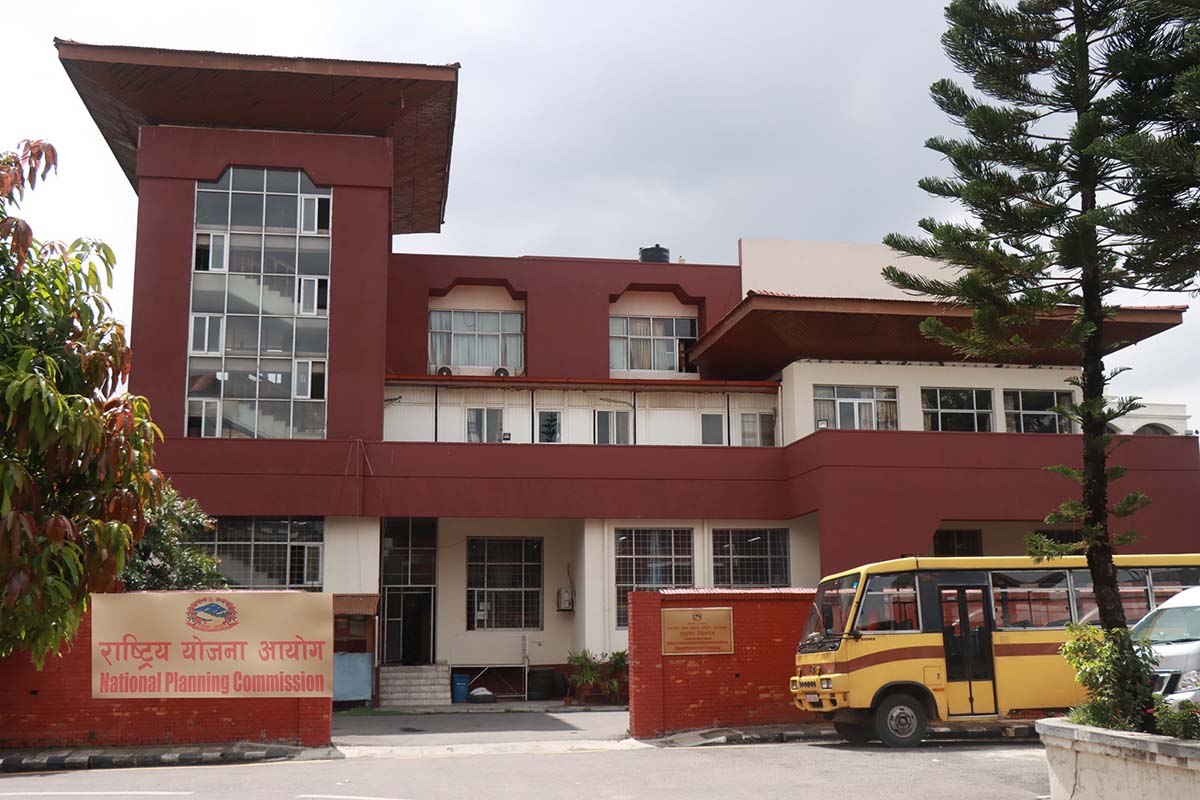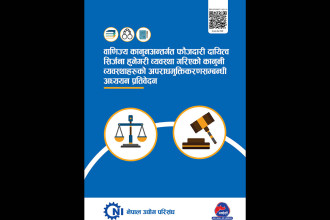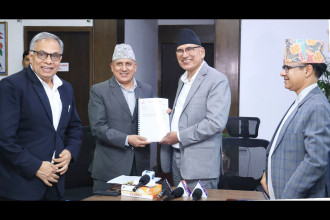
KATHMANDU: National Planning Commission (NPC) has stated that an investment of Rs 21.065 trillion is required for Nepal to implement the Sustainable Development Goals (SDGs).
Unveiling its report titled 'Sustainable Development Goals: Needs Identification, Cost Estimation and Fiscal Strategy, 2081 BS' in Kathmandu on Sunday, the NPC revealed that an average of Rs 3.023 billion annually will be necessary from 2024 to 2030 in order to implement the global development goals.
Of the total estimated cost, the largest portion is earmarked for the implementation of Goal-9, which pertains to industry, innovation and infrastructure development.
This sector is estimated to require 24% of the total investment, whilst 12% will be needed for Goal-7, which focuses on clean energy. Similarly, 11% has been allocated for poverty alleviation under Goal-1.
It is reported that 45.4% of the gross domestic product (GDP) is estimated to be necessary for progress towards the SDGs during the period from 2024 to 2030.
The NPC stated that a strategy has been devised to ensure the provision of fiscal resources from the public, private, cooperative and household sectors.
Of the total cost requirements, it is projected that 57.5% will be sourced from the public sector (comprising 70% from the federal government, 9% from provincial governments and 21% from local governments).
Morever, the private sector is expected to contribute 34.35% of the total estimated cost, whilst the non-governmental sector is anticipated to provide 4.18%. An investment of 3.95% is projected to come from the household sector.
NPC Vice Chair Shiva Raj Adhikari launched the report and remarked, "We are endeavouring to identify our needs in achieving these goals and the resources required to fulfil them. This report also identifies new sources of funding, as compared to those recognised earlier, and redefines the roles of all three tiers of government, as well as private and cooperative sectors, in achieving the objectives."
The report emphasises the necessity of identifying new sources such as blended finance and climate finance, alongside existing ones, for achieving the SDGs.
It outlines the long-term financial gap for implementing the SDGs and recommends economic, policy, and legal reviews to ensure the desired progress by 2030.
Moreover, the report suggests strategic interventions, including sectoral policy reforms, prioritisation of the SDGs, improvement in resource mobilisation, utilisation of foreign aid, enhancing the cost-effectiveness of public spending, and facilitating access to technology.
The NPC prepared the report recognising the need for reviewing and updating policies and strategies for the nationwide implementation of the SDGs in light of the Covid-19 pandemic, demographic shifts, migration and urbanisation, increasing inequality, climate change challenges, and the impact of conflict, including those within the provincial context.
In addition, the NPC released a book titled 'Method of Employing Key Economic Indicators'. According to the NPC, the book aims to enhance the effective utilisation of frequently-used economic indicators.
By RSS





-1737691566.jpg)
